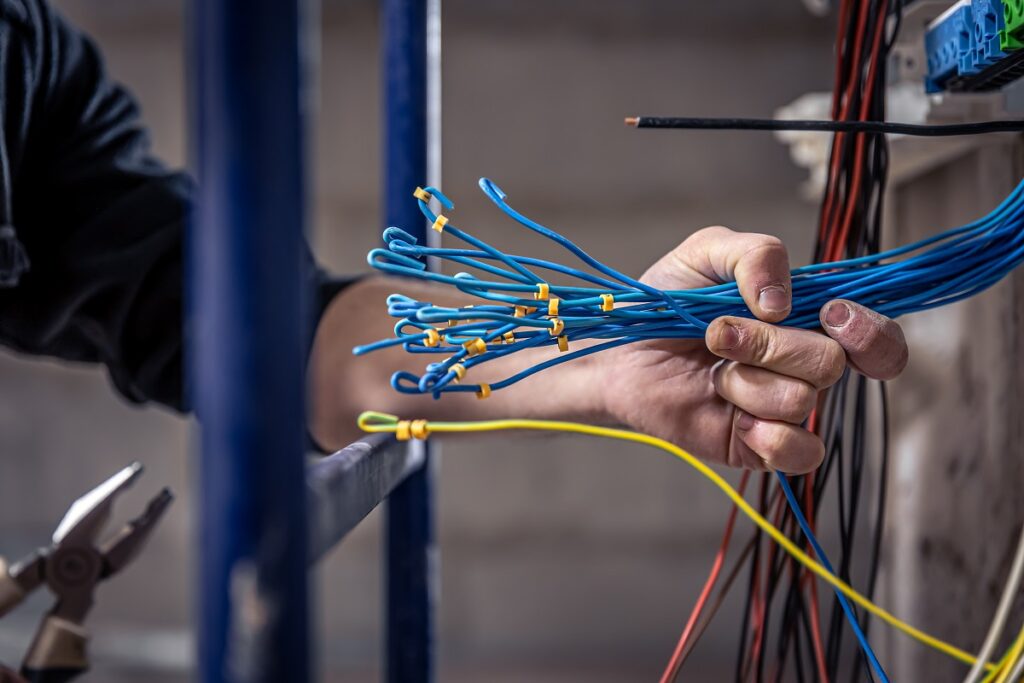The Ultimate Guide to Selecting the Right Wires for Your Project
Unleashing the Power of Savings Through Smart Choices
10 Common Wiring Mistakes to Avoid When Wiring Your Home or Office: Tips to Ensure Safety and Efficiency
In the world of home or office renovation, wiring is often an overlooked yet crucial aspect. Whether you’re revamping your living space or setting up a new office, the wiring process requires precision and attention to detail. However, even the most experienced DIY enthusiasts can make mistakes that lead to costly repairs or, worse, safety hazards. To ensure a smooth wiring process and avoid unnecessary headaches, here are 10 common mistakes to steer clear of:
Skipping the Planning Phase: Avoiding Chaos Before the Wires with Proper Home Wiring Tips
Before diving into the wiring process, take the time to plan meticulously. Map out where each wire will go, considering factors like electrical outlets, lighting fixtures, and appliance placements. Skipping this crucial step can result in messy and inefficient wiring layouts, leading to difficulties in troubleshooting and potential hazards down the line.
Ignoring Building Codes and Regulations: Stay Compliant with Wiring Standards for Safe Electrical Wiring
Building codes and regulations exist for a reason – to ensure safety and efficiency in electrical installations. Ignoring these standards can lead to serious consequences, including fines and safety hazards. Always research and adhere to local building codes and regulations when wiring your home or office to avoid legal and safety issues.
Overloading Circuits: Preventing Electrical Overload and Fire Hazards with Office Wiring Guidelines
One of the most common mistakes in wiring is overloading circuits. Connecting too many devices or appliances to a single circuit can result in electrical overload, leading to overheating, damage to wiring, and even fire hazards. Distribute electrical loads evenly across circuits to prevent overloading and ensure the safety of your space.
Incorrect Wire Sizing: Ensuring Proper Wire Gauge for the Job and Avoiding Wiring Errors
Using wires with incorrect gauges is a recipe for disaster. Too small of a wire gauge can lead to overheating and potential fires, while oversized wires can be costly and inefficient. Always consult with a professional or refer to wiring guides to determine the appropriate wire gauge for the intended application, considering factors like current load and circuit length.
Poor Wire Management: Taming the Tangle for Safety and Aesthetics in Home Wiring
Messy wire management not only looks unappealing but also poses safety risks. Exposed wires can be tripping hazards and susceptible to damage from environmental factors. Invest in cable management solutions like conduits, raceways, and cable trays to organize and protect wires, ensuring both safety and aesthetic appeal in your home or office.
Improper Grounding: Safeguarding Against Electrical Shocks with Proper Electrical Wiring
Proper grounding is essential for electrical safety. Failing to ground electrical systems can result in electrical shocks and damage to appliances. Ensure that all electrical outlets, circuits, and appliances are correctly grounded according to building codes and regulations to protect against electrical hazards.
Neglecting Wire Testing: Ensuring Reliability and Safety with Wiring Checks
After wiring your home or office, thorough testing is crucial to ensure the reliability and safety of the electrical system. Neglecting this step can lead to undetected faults and potential hazards. Use appropriate testing tools like multimeters and circuit testers to check for continuity, voltage, and proper wiring connections before finalizing the installation.
Using Incorrect Wiring Techniques: Employing Best Practices for Longevity and Avoiding Wiring Mistakes
Employing incorrect wiring techniques can compromise the longevity and reliability of your electrical system. Avoid practices like improper wire stripping, incorrect wire terminations, and inadequate insulation, which can lead to shorts, arcing, and electrical failures. Follow industry best practices and manufacturer guidelines for proper wiring techniques to ensure a durable and efficient electrical installation.
Neglecting Future Expansion: Planning for Scalability and Flexibility with Office Wiring
Anticipate future electrical needs and plan for scalability and flexibility in your wiring layout. Neglecting this aspect can result in costly rewiring projects down the line. Leave room for additional circuits and outlets to accommodate future expansions, renovations, or technological advancements, ensuring that your wiring system remains adaptable to evolving needs.
DIY When Unsure: Consulting Professionals for Complex Wiring Tasks and Avoiding Electrical Wiring Mistakes
While DIY projects can be fulfilling, some wiring tasks are best left to professionals, especially if you’re unsure or inexperienced. Attempting complex wiring installations without the necessary knowledge and skills can lead to costly mistakes and safety hazards. When in doubt, seek guidance from licensed electricians or professionals to ensure a safe and reliable wiring job.
By avoiding these common mistakes, you can ensure a smooth and safe wiring process for your home or office. Remember to prioritize safety, adhere to regulations, and seek professional assistance when needed. With proper planning and attention to detail, you can enjoy a well-wired space that is both functional and safe for years to come.

